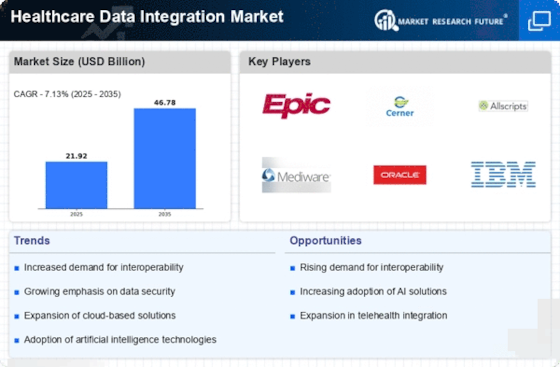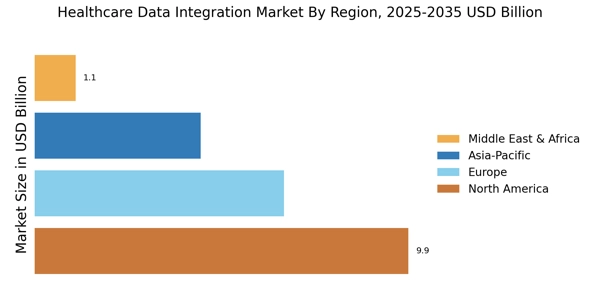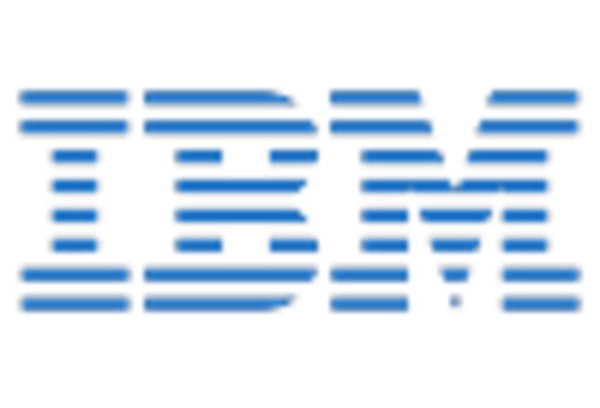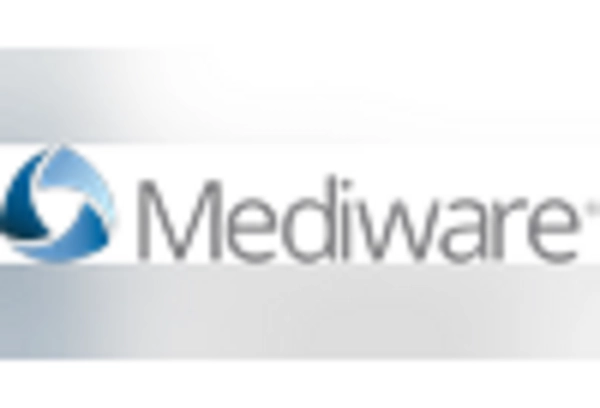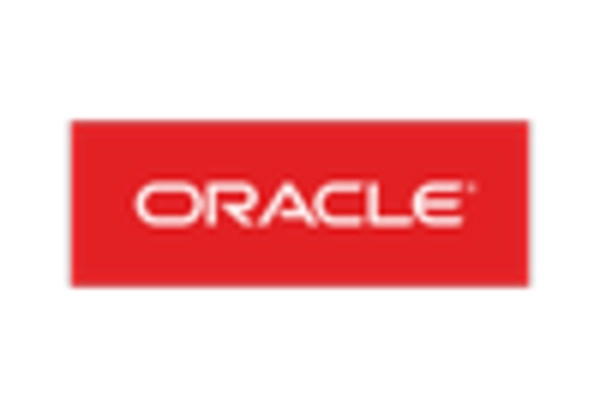Rising Demand for Patient-Centric Care
The Healthcare Data Integration Market is experiencing a notable shift towards patient-centric care models. This trend emphasizes the importance of integrating diverse data sources to create comprehensive patient profiles. As healthcare providers increasingly recognize the value of personalized treatment plans, the demand for effective data integration solutions rises. According to recent estimates, the market for healthcare data integration is projected to reach USD 4.5 billion by 2026, driven by the need for improved patient outcomes and enhanced operational efficiency. The integration of electronic health records, wearable devices, and patient-reported outcomes is crucial in this context, as it enables healthcare professionals to make informed decisions based on a holistic view of patient data.
Regulatory Compliance and Data Governance
The Healthcare Data Integration Market is significantly influenced by the need for regulatory compliance and robust data governance frameworks. As healthcare organizations face increasing scrutiny from regulatory bodies, the integration of data systems becomes essential to ensure adherence to standards such as HIPAA and GDPR. This compliance not only protects patient information but also enhances the credibility of healthcare providers. The market is expected to grow as organizations invest in data integration solutions that facilitate compliance and streamline reporting processes. The integration of disparate data sources allows for better tracking of compliance metrics, thereby reducing the risk of penalties and enhancing operational transparency.
Technological Advancements in Data Analytics
The Healthcare Data Integration Market is propelled by rapid technological advancements in data analytics. Innovations in artificial intelligence and machine learning are transforming how healthcare data is processed and analyzed. These technologies enable healthcare organizations to derive actionable insights from vast amounts of data, leading to improved decision-making and operational efficiencies. The market is projected to witness substantial growth, with analytics-driven integration solutions becoming increasingly prevalent. By leveraging advanced analytics, healthcare providers can identify trends, optimize resource allocation, and enhance patient care, thereby driving the demand for integrated data solutions.
Growing Emphasis on Population Health Management
The Healthcare Data Integration Market is increasingly shaped by the growing emphasis on population health management. Healthcare organizations are focusing on integrating data from various sources to monitor and improve the health outcomes of specific populations. This approach requires sophisticated data integration solutions that can aggregate and analyze data from clinical, social, and behavioral health sources. The market is likely to expand as organizations invest in tools that facilitate population health initiatives, with an estimated growth rate of 15% anticipated over the next five years. By leveraging integrated data, healthcare providers can implement targeted interventions and improve overall community health.
Increased Investment in Health IT Infrastructure
The Healthcare Data Integration Market is benefiting from increased investment in health IT infrastructure. Governments and private entities are recognizing the critical role of technology in enhancing healthcare delivery. Investments in electronic health records, telehealth platforms, and data integration solutions are on the rise, as stakeholders seek to improve interoperability and streamline operations. This trend is expected to contribute to the market's growth, with projections indicating a compound annual growth rate of over 12% in the coming years. Enhanced IT infrastructure not only supports data integration but also fosters innovation in healthcare delivery models.


